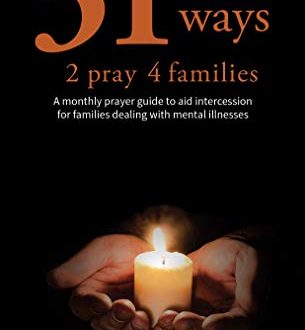Seven Ways to Engage the Culture
When Jesus sent out his disciples (see Matthew 10), He warned them to expect hostility—but to be wise as serpents, harmless as doves. What does it mean to be wise and harmless in how we approach people who believe far differently from the way we do?
1. Be quick to hear (James 1:19). When the US government announced they would allow military women in combat, I was glad for input from a few friends whose informed opinions guided my thinking on the subject. A retired Army general and his wife, whom I met at seminary, and a former seminary student of mine who works with cadets at the Air Force Academy reshaped my views. Their thinking differed significantly from my original thoughts, but I came to see these people had much more informed perspectives. Proverbs 18:13 reminds us, “The one who gives an answer before he listens—that is his folly and his shame.”
2. Form relationships with those on the “other” side. Listen to someone other than only talk-show hosts who take a predictable stand. (These personalities would lose fans if they deviated from their standard views.) We have the luxury of pursuing truth because it won’t cost us as much to change our minds, to alter our views, or to soften our approaches. So we can go ahead and ask our Muslim friends, “What do you believe about Jesus?” Or tell our friends who believe women should never, ever speak in public, “Help me understand how you reach that conclusion.” Proverbs 18:17 says, “The first to state his case seems right, until his opponent cross-examines him.” And sometimes we ourselves need the cross-examination. At a Christian conference for the press last year, a panel discussion included several members of the LGBT community. They told us that they would police the vitriol against Christians on their side if we would do the same for gay-bashing talk on our side. Is that such a bad compromise?
3. Affirm what is good. Unlike politicians who risk losing credibility when they affirm an action or viewpoint of the opposition, Christians must make friends with our opponents. And when we see something good, we must affirm it. Consider that Paul in Athens saw pagans with numerous altars built to false gods, but he used the one altar dedicated “to an unknown God” to reveal the identity of that unknown One (see Acts 17). He also affirmed the Athenians for being religious. Only after he did so did he challenge their thinking.
4. Tell the truth. Doing so may seem obvious, but in the last election, for example, Christians were notorious for slanting stories as we sought to apply the Bible to everyday life. Why does politics seem to bring out the worse in us? Maybe you knew that Mr. Giglio was not technically uninvited to pray at the Inauguration and that President Obama did not support removing the word “God” from the Democratic platform. If you did, I would venture a guess that you are in the minority. My point is not to support the platform or those who opposed Mr. Giglio. My point is that how we relay what happened should demonstrate our trust that truth is a characteristic of our God— and a characteristic to which we are committed and for which we wish to be known. Even if it seems to hurt our case.
5. Tell a story/address an issue from the most credible angle. Notice how the anchors on the nightly news do this. If the story is about reproductive laws such as abortion that affect women, have a woman in her reproductive years handle the press conference. For issues affecting a predominate race, have a member of the most-affected minority speak. If we’re taking a stand against an organization or party’s stand because it’s unbiblical, we need to find a Christian within the accused party and have him or her speak out.
6. In general, use others’ terms for themselves. Have you seen the bumper sticker that says, “It’s not a fetus, it’s a baby”? It’s both, actually. “Fetus” is a technical term for a mammal between the ninth week after fertilization and birth. It’s not a new word, either. It’s fine to refer to a pre-born child as a “baby.” But referring to it as a “fetus” is not necessarily a hint that someone supports abortion on demand. “Fetus” is the more precise term for differentiating between the pre-born child and the one already-born one. Some do use the term as a way of desensitizing people to abortion, but that does not mean all who use the term intend to do so. Speaking of which, the respectful way to refer to someone who self-labels as “pro-choice” is not “pro-death.” By using such labels, we can make statements but win no friends and change no minds. If you are pro-life and someone refers to you as anti-choice, feel free to say, “Please refer to me as pro-life, and I will refer to you as pro-choice.” Do unto others…. We might not agree with what the others’ preferred label represents, but if we want a hearing, we cannot afford to alienate those we wish to persuade.
7. Be gentle. Proverbs 15:1 tells us, “A gentle answer turns away wrath.” We do need to stand up and refuse to allow the crowd to wear us down. But in the words of Prof Hendricks “Some people say, ‘You can lead them to water, but you can’t make them drink.’ It’s not true. You can feed them salt.” Our challenge is to season our words with the stuff that makes them thirsty for more. And that means listening and gentle approaches and words crafted to build bridges rather than to alienate.



3 Comments
SonShine
wise counsel
Thanks Sandi for this wise counsel…always pertinent and to the point..just wish it had been yesterday you did this! Open mouth and insert foot…damage done..but God is gracious.
G.
Sandra Glahn
There But for the Grace of God…
Thanks, Gaye. Sorry I'm late. :/ Love your humility. If we are honest, each of us has said and done stuff we regret. "The tongue no one can tame," huh? Love you!
Sue Bohlin
Whoa, Sandi . . .
Brilliance AND graciousness in one blog post. Bless you! This is sooooo good!
May I request that you blog on women in combat? I'd love to hear what you learned!